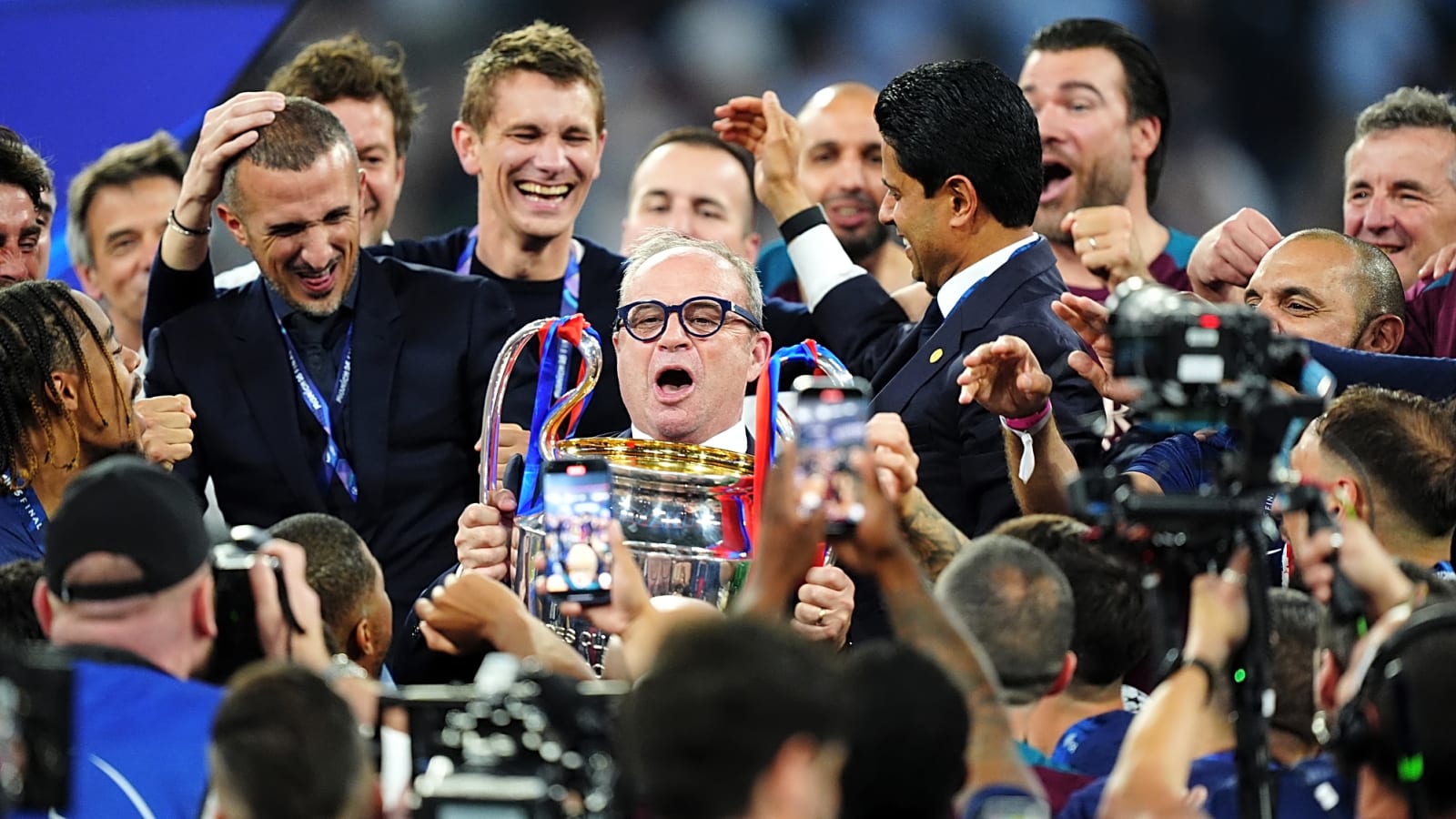
What's behind club soccer's lack of top-level competitiveness?
When Paris Saint Germain beat Inter Milan 5-0 on May 31 in Munich to win the UEFA Champions League, the global media reacted with equal parts awe and horror. PSG’s blowout was the biggest final win margin since the Champions League began in 1956. Surely, many in the media posited, this kind of thing was a crazy aberration.
The next day, though, that "crazy aberration" happened again.
North America hosted the final of the Concacaf Champions Cup, its own continental club soccer tournament, and it resulted in the same score. Mexico’s Club America and Canada’s Vancouver Whitecaps entered the final as equals but left it on different planets after America dismantled Vancouver 5-0 in Mexico City.
Tournament finals are meant to be close; in the past 10 years, one Champions League and Champions Cup final apiece have had a win margin greater than two goals. Blowouts of any kind are unusual. But after years of tense, closely run matchups, the world of club soccer threw convention out the window in 2025 and tossed up two 5-0 hammerings on two continents in less than a day.
Nobody wants to make excuses after a massive defeat. Fans don’t want to hear them, journalists don’t want to write about them and players don’t want to think about them. Inter Milan coach Simone Inzaghi and Vancouver coach Jesper Sorensen knew that better than anyone when they were interviewed after their humiliating defeats.
But while providing a commendably measured takes on their losses, both managers let a single excuse slip — one that ties together both of their skewed 5-0 losses and raises important questions about how tournament finals are run.
“We were more tired, we weren’t fresh and PSG were always on the ball before us,” Inzaghi said, per Mark Ogden of ESPN.. “But we played for our league title last Friday and they (PSG) won their league weeks ago.”
“Contrary to other teams playing a game like this, we are midseason, not at the end of a season,” Sorensen said a day later. “We have a long season ahead of us.”
Both Inzaghi and Sorensen have a point here. Inzaghi’s Inter played a decisive title game May 23 and had just one week to prepare for the Champions League final; its opponent, PSG, hadn’t played a competitive match with its strongest lineup since May 7.
Meanwhile, Sorensen’s Vancouver played a Major League Soccer game May 28 and had three days to travel to Mexico City to get ready for the Champions Cup final; its opponent, Cruz Azul, wrapped up its season May 18 and had two weeks to rest and to prepare.
This is the connecting thread between these losses. There’s no fairness in finals when teams operate on wildly different schedules. It’s no one’s fault — Cruz Azul didn’t ask for the Mexican soccer season to be structured the way it is, and PSG didn’t trick anybody by storming its way to a league title early — but when it affects the competitiveness of soccer’s headlining matches, it’s everyone’s problem.
Viewing figures are still being calculated, but it’s likely that nearly 200 million people tuned in to these two matches, with many of them being casual drop-ins enticed by the occasion of the two finals. Were those drop-ins convinced of soccer’s value, competitiveness and health after watching two teams destroy their competitors? Probably not.
The lack of consistent rest time is becoming a real killer for club soccer. As schedules get heavier — Europe’s top teams now often play 70 games per season — that lack of rest is affecting everything about club soccer’s biggest moments. These twin 5-0 blowouts were aberrations, but without careful planning from UEFA, Concacaf and soccer league leaders across the globe, they’ll become the unhealthy, uncompetitive and thoroughly un-entertaining new normal.
More must-reads:
- Chicago Fire hoping to undo past mistakes with new stadium plans
- Cruz Azul hammers Vancouver to win Concacaf Champions Cup
- The 'UEFA Champions League Winners' quiz
Breaking News
Trending News
Customize Your Newsletter
 +
+
Get the latest news and rumors, customized to your favorite sports and teams. Emailed daily. Always free!








